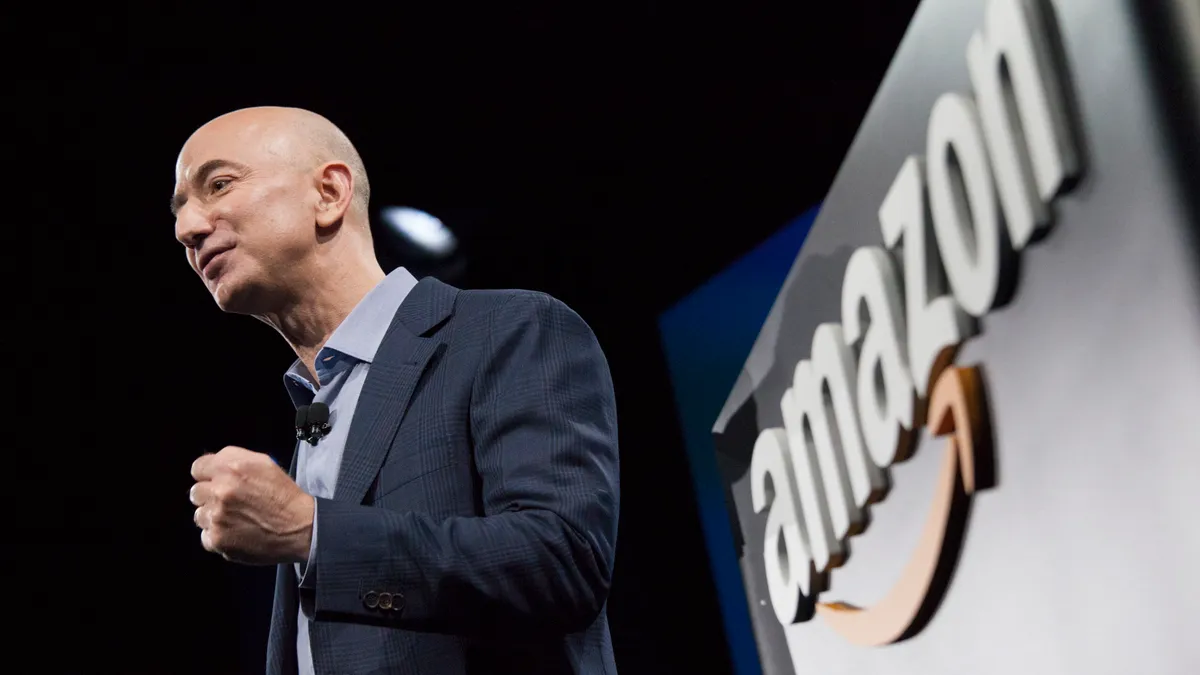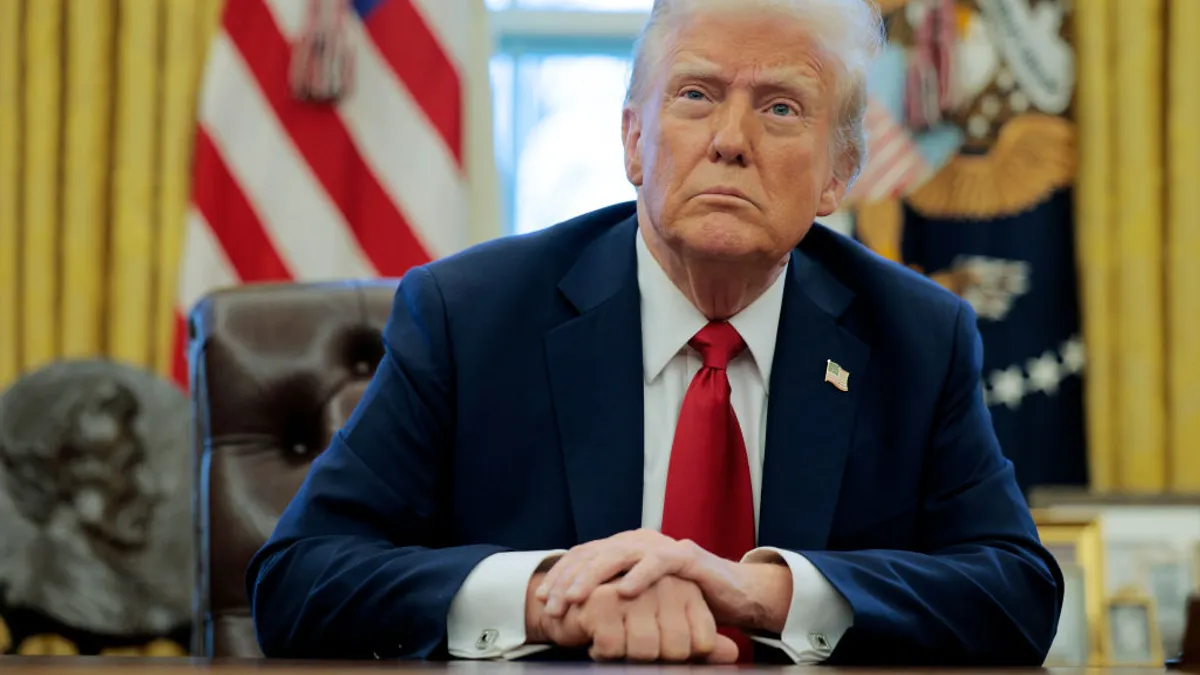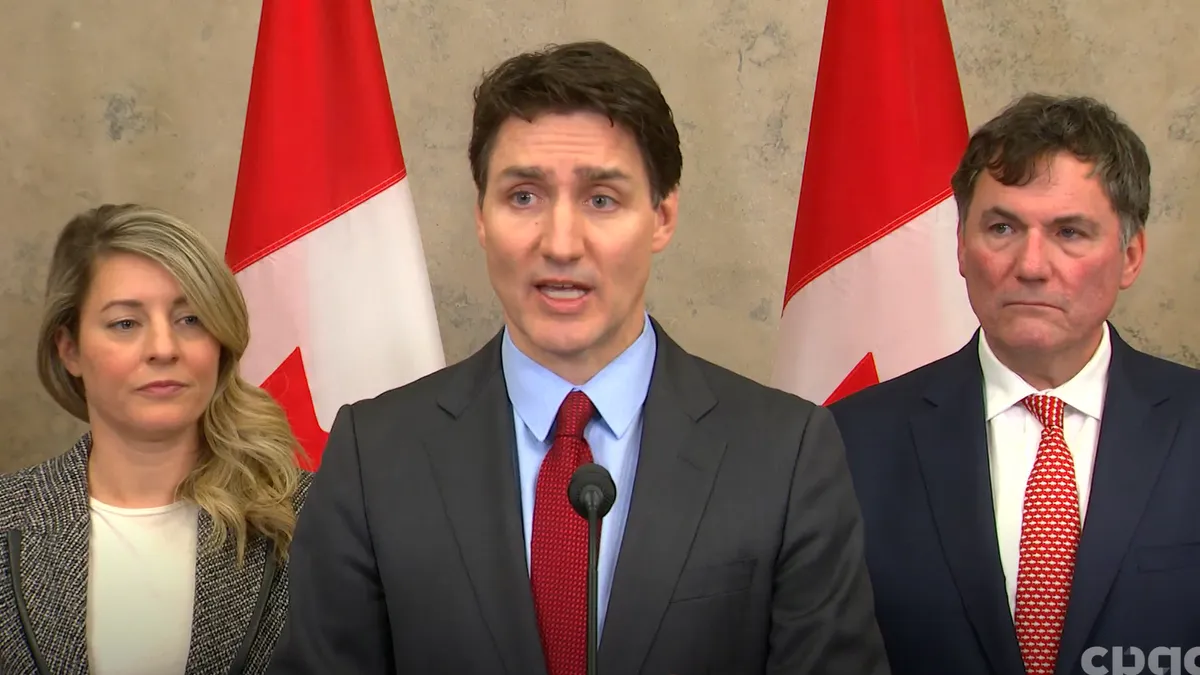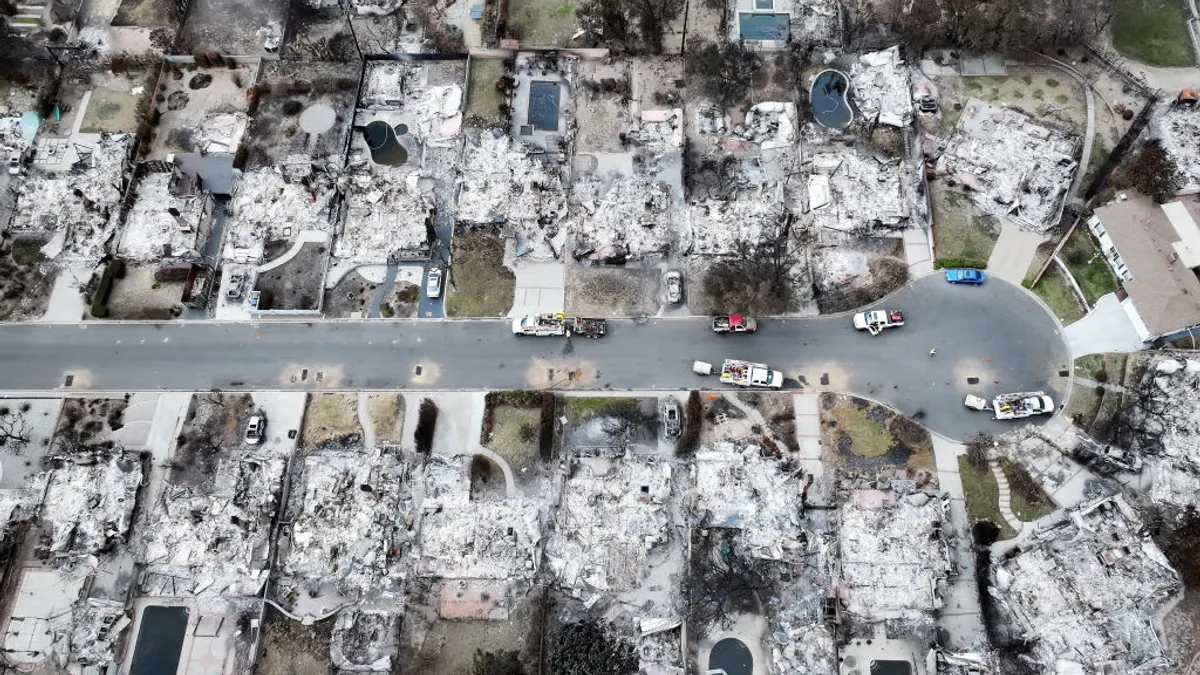Billionaire Jeff Bezos, founder, president and CEO of e-commerce company Amazon, on Monday announced his commitment to providing $10 billion toward fighting climate change.
Specifics of the plan were sparse — in his Instagram post announcing the funding, he said the Bezos Earth Fund will provide funding for "scientists, activists, NGOs — any effort that offers a real possibility to help preserve and protect the natural world." He'll begin issuing grants this summer and said the $10 billion is "to start," but doesn't specify how much more he plans to spend or over what time period.
Some speculate the billionaire's move was timed to deflect attention from FRONTLINE's release of a documentary that includes criticisms of his technology empire's carbon footprint and rising pressure from the company's employees about not doing enough on climate change.
"Clearly this was done quickly … he's not fleshed out how exactly he wants to spend the money at the moment, it seems it's going to anybody and everybody," Aseem Prakash, political science professor at the University of Washington and founding director of the school's Center for Environmental Politics told Utility Dive.
Despite the uncertainties, it's clear to most observers that the funding could have huge impacts for fighting climate change.
"It dwarfs other philanthropy in this realm," Robert Stavins, professor of energy and economic development at Harvard and director of the university's environmental economics program told Utility Dive. "It sort of rises to the level of government actions in the climate policy or climate realm. So it's potentially very significant."
Michael Bloomberg launched a $500 million Beyond Carbon campaign, the largest coordinated climate change plan in the U.S. at the time, according to Bloomberg Philanthropies. The former New York mayor also launched Beyond Coal in 2011, and has invested $100 million since then on the campaign, which credits itself for the early retirement of over half the country's coal fleet. Bezos and Bill Gates in 2016 also set up a $1 billion venture capital fund to invest in energy startups committed to reducing carbon emissions.
In sum, $10 billion could go a long way.
"It's an insane scale-up of all the [climate] funding and I think it [is] a genuine question about how is this going to get spent?" Leah Stokes, assistant professor of energy and environmental politics and the University of California, Santa Barbara, told Utility Dive.
How should he spend it?
Some say the funding would be best spent on emerging technologies and scientific research, while others argue targeting policy and advocacy campaigns are the best use of $10 billion. Others say a healthy hybrid is best.
An unwise way to spend the money would be to make repeat investments in climate action that already has funding, thereby freeing up those investments to be spent somewhere else, said Stavins.
Bezos should "ensure that the money does not simply substitute for other money, otherwise there's no additional action whatsoever," he said. "What's most important is for him to, at the very beginning, identify what are the niches that merit support that are not receiving support."
Movements like Beyond Coal and Beyond Carbon are what need to be amplified, said Stokes — funding policies and movements are the best way to gain leverage and funding advocacy for big federal policies like the Green New Deal could open up trillions in federal dollars that could be used in turn for things like research and development.
"When you're targeting climate action, you have to think about who is responsible for making different decisions," she said. "The Beyond Coal campaign is a state-by-state campaign because coal plants are approved and shut down at the state level through public utility commissions. And so that was a really good strategy for a particular part of the climate problem."
Hypothetically, other campaigns could contribute to more grassroots movements as well, she said, like expanding support for larger transmission buildouts, or incentivizing battery storage, building decarbonization and electric vehicles.
Transportation electrification is becoming central to decarbonization, and several power sector observers emphasized the need to electrify vehicles in the U.S. — which made up the greatest portion of greenhouse gas emissions in 2017 at 29%, just behind electricity, according to the U.S. Environmental Protection Agency. And though the power sector's emissions dropped 10% in 2019, according to preliminary results released in January from the Rhodium Group, transportation dropped only slightly and other sector emissions rose, leading to increased urgency to decarbonize other sectors.
"Thinking about the largest source of climate pollution in California and nationally, we think that investing some of those funds in electrifying transportation would have a significant impact," Next 10 founder Noel Perry told Utility Dive. Part of that goes back to policy, he said — "one of the biggest tools in the tool box is public incentives to buy electric vehicles" as well as to build out charging infrastructure.
For that to happen, there needs to be state and wholesale market policy support, Heather O'Neill, president of national business group Advanced Energy Economy told Utility Dive in an email.
"Amazon has taken a leadership step with its order of 100,000 vehicles from Rivian, helping to create a market for electric delivery trucks, but we need a nationwide buildout of charging infrastructure to support a mass market of EVs of all types, and that requires supportive policies at the state and federal level," she said.
The Amazon factor
Bezos' company this fall committed to powering its global facilities by 100% renewable energy by 2030, while reaching net-zero carbon emissions by 2040. Included in that pledge is a commitment to add 100,000 electric delivery vehicles on the road by 2030 and install solar panels on 50 rooftops by 2020 — a goal the company has already met.
As part of this commitment, the company has been ramping up its wind and solar power investments and in January partnered with Lime, AT&T and Siemens to accelerate electric vehicle deployments.
But a company of its scale could do far more to combat climate change, according to Prakash.
"Bezos has to think beyond this $10 billion … the leverage he has is not just $10 billion, the leverage he has is Amazon," he said. "Amazon can utilize its global supply chain network [and make it] an aggressively green supply chain … Be clear that we will not do business with fossil fuels. I think if Amazon does that, others will follow."
Decarbonizing its supply chain is a major step in that direction, said Prakash, which includes taking responsibility for the actions of its suppliers, similar to what Walmart has begun to do. Amazon and other tech companies have also been criticized for pitching fossil fuel companies its cloud services to help them find new oil reserves.
"What do you need as a first mover — a person who would say, 'You know what, I want to take the bet and stop doing business with fossil fuels because I think the time has come where we have to really aggressively look at climate change,'" said Prakash. "And then I wouldn't be surprised if other cloud computing companies follow suit because there will be public pressure — if Amazon can do it, why can't you do it?"
Amazon has faced backlash in recent months after it reportedly threatened to fire employees who spoke out about their concerns over the company's climate policies. A coalition of employees called Amazon Employees for Climate Justice were critical of what they framed as a hypocritical stand.
"We applaud Jeff Bezos' philanthropy, but one hand cannot give what the other is taking away," the group said in a statement.
"Why did Amazon threaten to fire employees who were sounding the alarm about Amazon's role in the climate crisis and our oil and gas business? What this shows is that employees speaking out works — we need more of that right now. Will Jeff Bezos show us true leadership or will he continue to be complicit in the acceleration of the climate crisis, while supposedly trying to help?"
























